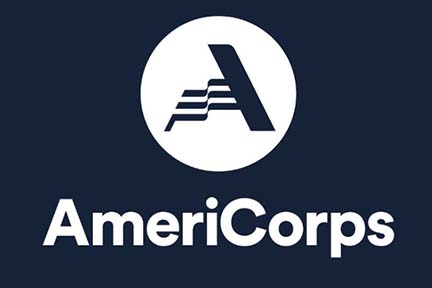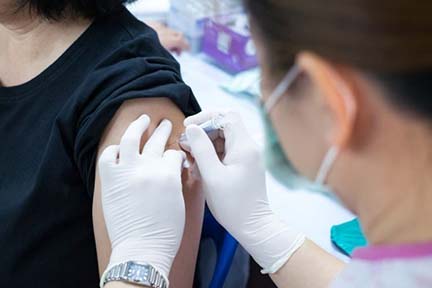
Bipartisan Budget Investments in Working Families

FOR IMMEDIATE RELEASE July 8, 2022 Contact: [email protected]
Gov. Whitmer Highlights Bipartisan Budget Investments in Working Families, Connected Communities Budget will honor those who served, build up infrastructure, and fund critical local projects
LANSING, Mich. — Today, Governor Gretchen Whitmer highlighted investments in working families and connected communities in the recently passed bipartisan budget for Fiscal Year 2023. The budget delivers additional resources to communities across Michigan to help them invest in first responders, speeds up replacement of lead service lines, builds a new veteran’s home, shores up pensions for municipal workers, and invests in infrastructure. The fiscally-responsible, balanced budget delivers on the kitchen-table issues, was passed on time, and does not raise taxes by a dime.
“Since day one, I have been focused on delivering on the kitchen-table issues that matter most to working families,” said Governor Gretchen Whitmer. “The budget makes critical investments in working families and communities to help them thrive. It will deliver more funds to local communities helping them invest in police officers and firefighters, speeds up replacement of lead service lines, and reduces congestion at local rail crossings. The budget also delivers on critical community projects, funding the construction of a new veteran’s home in Marquette, modernizing Michigan’s armories, and upgrading Selfridge Airforce Base in Macomb County. Finally, the budget keeps promises made to hardworking municipal employees, shoring up their pensions. This budget is proof of what’s possible when we put working families and communities first and stay focused on getting things done.”
Families & Communities by the Numbers
Families & Communities Budget Investments There are three key areas of the budget that invests in families and communities.
1) Honoring Those Who Serve To ensure those who served have the support they need, the budget funds construction of a new veteran’s home in Marquette, backs a suicide prevention outreach campaign, and shores up the pensions of MSP troopers. To honor the memory of those we have lost, it establishes a veteran’s ceremony in Grayling.
2) Building Up Infrastructure The budget expands on the investments in the bipartisan Building Michigan Together Plan signed in April by speeding up replacement of lead service lines, reducing traffic congestion at local rail crossings, improving state fish hatcheries, and funding long-overdue maintenance projects at state facilities.
3) Funding Critical Local Projects The budget will make critical improvements to Selfridge Air Force Base in Macomb County, invest in Innovate Mound, a transformative project to rebuild Mound Road, one of the most important corridors in Southeast Michigan, and fund modernize Michigan’s armories, shoring up our readiness and supporting local construction jobs.
“Michigan’s allocation of $750M dollars to municipal pensions throughout the state is a major victory for Flint and for the entire state,” said Flint Mayor Sheldon Neeley. “These dollars will guarantee the availability of funds to pay retirees who have readily served our communities with pride and dignity. In Flint and Genesee County, these funds will help to strengthen our region and empower communities across the great state of Michigan, and it is all due to our fearless leader—Governor Gretchen Whitmer.”
“The building on Fisher Street has been a home to Upper Peninsula veterans for 41 years, with the staff and volunteers making it a true home,” said Brad Slagle, Board of Directors, Michigan Veterans Homes. “Now that tradition can be continued in a new building with a modern design that provides five-star care and with the same loving care.”
“Michigan has some of the nation’s best citizen Soldiers and Airmen. We are thankful for the governor and the state legislatures’ work to include money to provide for Armory. This $100M will help our warriors have the best facilities to conduct home station training, while also investing into local communities across Michigan,” said Jeffrey Frisby, Executive Director of the National Guard Association of Michigan. “As our local armories have aged, they no longer can house the true demographics of the force. The number of females serving in the National Guard has greatly increased over the last 100 years, but the armories were not constructed with the female warrior in mind. Some of our current facilities do not have female bathrooms, showers, or locker rooms. These funds will be used to update and adapt local armories to better serve the Guardsmen in those units. Our Guardsmen are being asked to serve in missions across the world, these modernizations will give them a building that they are proud to come home to.”
“The budget approved by the Legislature and Governor makes significant investment in the people of Michigan and the places they call home,” said Michigan Municipal League Board President Barbara Ziarko, Sterling Heights city councilmember. “With specific investments in revenue sharing, assistance for municipal pensions, and other programs that help local communities, this budget will bring needed relief, and improve capacity moving forward. This budget builds on the positive momentum of previous investments in our communities. There remains opportunity going forward to equitably invest those remaining resources to ensure Michigan is an attractive place for talent and supports thriving communities in ways that benefit everyone.”
“We applaud Governor Whitmer, and the Legislature, for their recognition in the state’s historic budget of the immense value and importance that Michigan’s townships and other communities have in the lives of every resident in our state,” said Michigan Townships Association Executive Director Neil Sheridan. “The increase in City, Village and Township Revenue Sharing, along with investments in new grant opportunities for communities for lead line replacement, will help local governments to better provide quality of life and essential services to Michiganders today, and in the future, and continue to improve the places we all call home.” |







